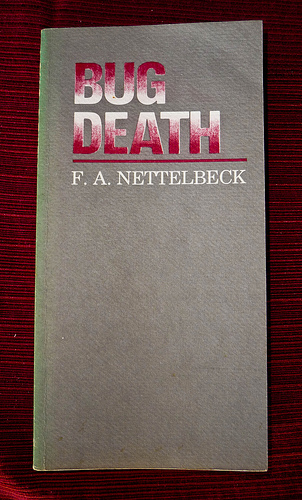Tue 11 Jan 2011
Chapters In Los Angeles Poetry (at the Public School)
Posted by bstefans under Los Angeles PoetryNo Comments
I had insomnia last night, and in the midst of it proposed this discussion group at the Public School here in Los Angeles. If you don’t know, the Public School is a forum for spontaneous informal courses and discussion groups. You propose a course (one which you would either teach, attend, or teach a few sessions of), and if there is enough interest over time, a time is agreed upon and the course moves forward. We’ll see who (or what!?) bites.
The Poetic Research Bureau is housed in the same space in Chinatown, so if this goes forward, it would probably be considered a PRB-sponsored project as well.
Chapters In Los Angeles Poetry
I’ve been doing research on poetry in Los Angeles from the late 19th century to the 70s, mostly concentrating on radical or experimental trends. Los Angeles doesn’t have a strong “tradition” or sense of continuity with its past “cultures” of poetry — moments happen, linger, then disappear. I’d like to rediscover and examine some of these moments, since even just scratching the surface, I’ve come up with some interesting material that is practically unknown to the general reader.
Each week, I would send out a .pdf of a set of poems and poets, along with whatever useful essays, interviews and other secondary material I can find. The discussion would be largely informal, and I invite everyone to bring laptops so that we can actually do research as we discuss. Some issues will include simply discerning the “poetics” of that particular writer — who they might have been influenced by, what they have added to — the content of the writing, the moral/ethical stances, the success or failures, etc. — whatever it is that makes the poem unique (failed poems can be very unique).
We’ll also play around with questions of what a “Los Angeles poet” is — several of these writers didn’t live here past their 30th years, and a few didn’t even live here ten years (I’d like to include Robinson Jeffers and Bertolt Brecht in the discussion).
Among the groupings I’ve come up with: the “Little Caesar” crowd at Beyond Baroque, so named after the journal published by Dennis Cooper — who would go on to become famous for his explicit, gay, often sadistic fiction. Amy Gersler and Bob Flanagan (“Slave Sonnets”) was part of this scene, as well as the members of X for a while. Another group is those folks centered around Thomas McGrath, a leftie who moved here to take a job at Los Angeles College and was fired during the McCarthy era. He stayed around and mobilized a pretty interesting group of writers. They would be the ones to host Allen Ginsberg’s first reading in LA. A little later, a radical “New American” kind of scene sprung up in Venice — the “holy barbarians” — where poets like Stuart Perkoff and John Thomas lived, and the Situationist Alexander Trocchi wrote parts of Cain’s Book.
Early in the century you had the singular figure, Nora May French, who, after writing a small group of highly wrought poems, shot herself in despair over a love affair. She and a small group of primarily female poets seem to be the earliest (outside of the Spanish writing, which I’d also like to look at) sophisticated poetry here. We’ll also take a look at some of the other poets who seem to have something to do with the poetics of Bukowski, but who are actually more extreme — F. A. Nettlebeck, author of the book-length Bug Death is one example (though he left the area around the time of its publication) — and who could make more claims to being “avant-garde” formally.
Well, the list goes on. I also want to look at people normally associated with art — Ed Ruscha, Allen Ruppersberg and Guy de Cointet — and theater and dance, such as Brian Reynolds, Simone Forti and Erik Ehn, though he’s since left the area. In this way, I’d like to expand the idea of what constitutes “poetry,” especially in light of the interesting work being done by present-day poets, conceptual writers, artists and performers in LA.
